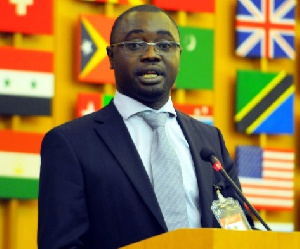Ghana loses at least $520 million annually due to the degradation of agricultural soils, forests and Savannah woodlands, coastal fisheries, wildlife resources and Lake Volta's environment.
The deforestation rate in the country also stands at 135,000 hectares annually, culminating in the country’s forest reduction to 1.6 million hectares from 8.2 million at the turn of the century.
These were made public at a consultative meeting to engage ambassadors appointed by the National REDD+ Secretariat of the Forestry Commission of Ghana to advocate for Ghana's Emission Reduction Programme.
The Ambassadors are expected to "Sell" the REDD+ mechanism to their peers, emphasising on the need to adopt climate-smart agricultural practices in their bid to combat climate change while enhancing their farming activities.
The ambassadors, made up of eminent and influential people expected to lead the crusade on REDD+ and climate change mitigation, include Uncle Ebo Whyte, playwright; Mr Ken Thompson, CEO of Dalex Financial Services; and Prof Mrs Esi Awuah, Vice-Chancellor of the University of Energy and Natural Resources.
Others are Dr Ishmael Yamson of Yamson and Associates; the Omanhene of the Essikado Traditional Area in the Western Region, Nana Kobina Nketsiah V; and a host of media personalities and musicians.
REDD+ is an acronym for Reducing Emissions from Deforestation and Forest Degradation. The Plus sign represents activities that offer co-benefits such as biodiversity conservation, sustainable forest management and carbos stocks enhancement.
The head of the Climate Unit of the Forestry Commission, Mr Yaw Kyei, stated that "REDD+ provided an opportunity to mitigate climate change and make the country's land-use sector more resilient while establishing a new source of revenue and benefits for the country.
An environmental management specialist, Dr Rebecca Ashley Asare, observed that although Africa was contributing little to the global emission figures, the continent was likely to experience some of the worst effects because of poverty.
“Mitigation and adaptation measures are needed and forests can play an important role,” she said.
Dr Asare said Climate-Smart Agriculture, which puts premium on balancing environmental sustainability with environmentally-friendly farming techniques, and REDD+ were key approaches which could contribute to addressing climate change threats.
Business News of Monday, 23 November 2015
Source: The Finder













